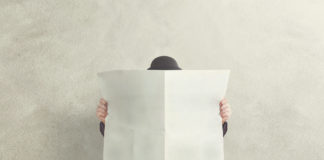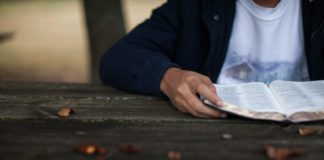Prayers of thanksgiving and praise
When we think of gratitude and a lack of gratitude, the biblical scene that comes to mind is the healing of the ten lepers, of whom only one, a Samaritan, returned to thank the Saviour, worshiping and praising God in a loud voice (Luke 17:15-16).
Ship your grain across the sea…you may receive a return
When we help someone without expecting anything in return, we often forget both the recipient and the gift. But God does not forget, and fulfils—at just the right time—the promise found in the verse that provides the title of this article. He did the same in my case.
“You can be happily married to anyone if you try hard enough.” True or false?
Can you be happily married to anyone? The idea of happiness as a thing of one's own creation persists in our times, although its cultural sedimentation belongs to the modern age.
Book review: Juice
In my humble but literary-educated opinion, Tim Winton is Australia’s finest living novelist. Since winning publication of his first novel in a competition for young writers in 1981, he has had 10 more novels published, as well as collections of stories, plays, books for younger readers and a handful of non-fiction works. Winton has won Australia’s top literary prize—the Miles Franklin Award—on four...
The boots that filled a void in the soul
No matter how hard we try to hide it, there are days when we are struck by the overwhelming feeling that our lives, however beautiful and enviable, are missing something essential.
Who Am I?
I guess my mid-life crisis kicked off when I turned 26. What is my purpose in life? What have I accomplished so far? Am I caught in a treadmill of mediocrity? Who am I? Am I basically a good person or a selfish person? Do I have a destiny? These kinds of questions have a way of recycling themselves—they turned up again around my 31st birthday,...
“One Thousand Gifts: A dare to live fully right where you are”
"One Thousand Gifts" describes the beautiful revolt of a soul that does not want to be crippled by what it has lost, but to pierce its own suffering like an arrow springing from the bow of grace, a leitmotif of the whole book.
Four red flags to watch in your teen’s relationship
Young love can be intoxicating, exhilarating and filled with passion. While many young relationships are healthy and positive, some can take a concerning turn.
COVID-19: How does anxiety affect us?
A global crisis situation, such as that generated by the current pandemic, is a complex picture with many variables bringing high levels of emotional distress. During a pandemic, many people will face a wide range of reactions and emotions, and the psychological impact will often be greater than the medical one.
Appeal to ignorance: Why it is useless to hide behind your finger
The appeal to ignorance (argumentum ad ignorantiam) is an error in thinking which argues that a conclusion is true because there is no evidence against it, or that a conclusion is false because there is no evidence in its favour.
The young man who brought us the mirror
In the case of the well-known tension between the church and the younger generation, only one conclusion is possible. It’s not hard to figure out what we’re missing, it’s just hard to accept—on both sides.
COVID-19: Let’s not go back to normal
Let’s not go back to the abnormality of before! This is one of the messages which the French hung from their balconies on May 1, when the activities that would usually happen on this national public holiday could not take place. What can we change and what is worth changing after COVID-19?
When love ties us too tightly
"Love means never having to say you're sorry." When I first heard this line from the "Love Story" blockbuster, I thought I was the only one who didn't understand what it meant. However, after watching a recent interview with the lead actress, I was reassured. She too thought it was a stupid thing to say. Still, the phrase was a hit at the...
Before ending a relationship
What do you do when a relationship no longer feels right or doesn’t meet your expectations? Do you try to fix it, or are you more inclined to walk away? Here are a few things worth considering before making the decision to end a relationship.
Bevvies without the buzz
As the balmy Australian summer took a chilly turn, I found myself sitting one day in a pub in Jindabyne, New South Wales with a friend attempting to escape the bitter autumn weather. As I took in the ambience, I reflected on what was a largely alien environment to me.


























